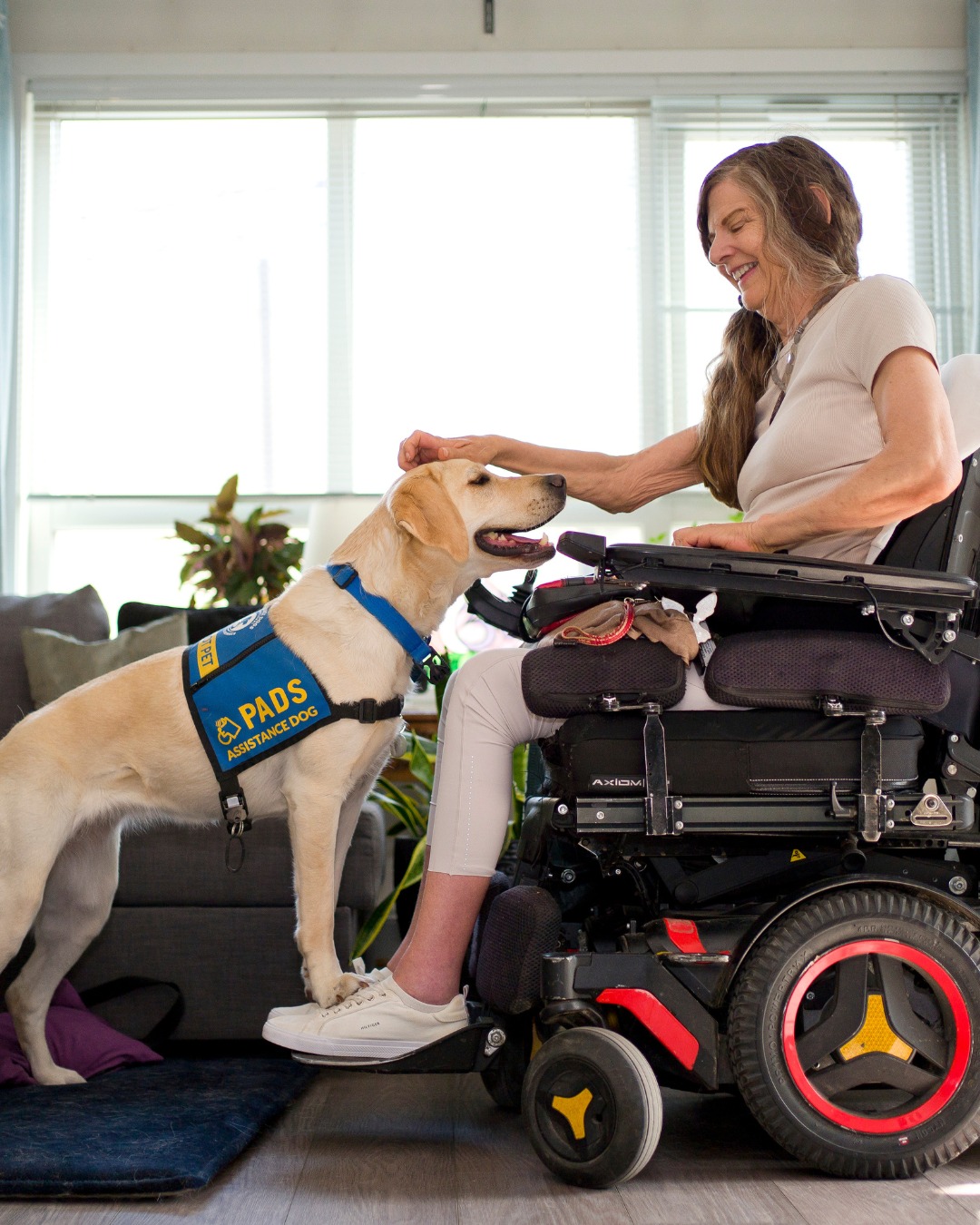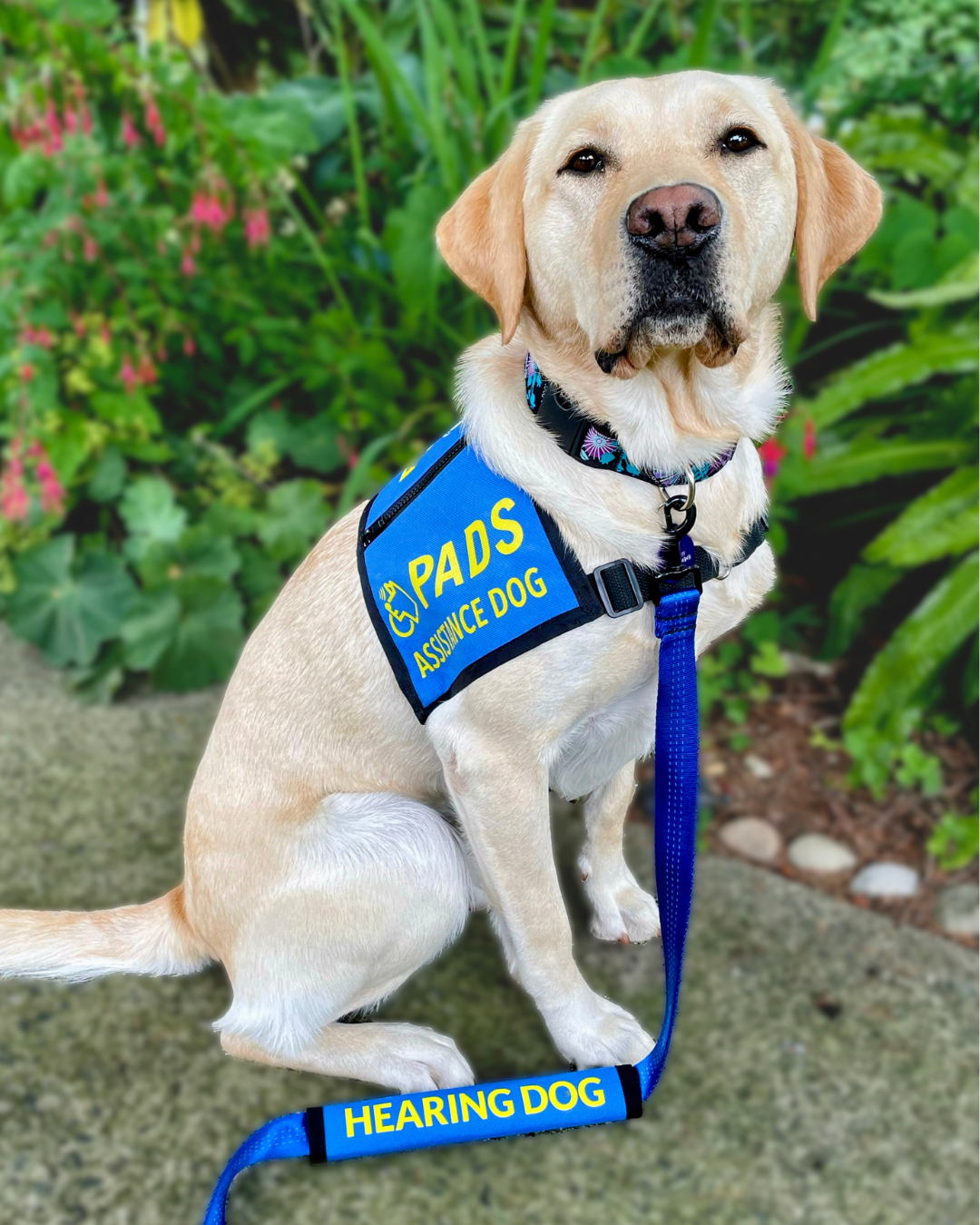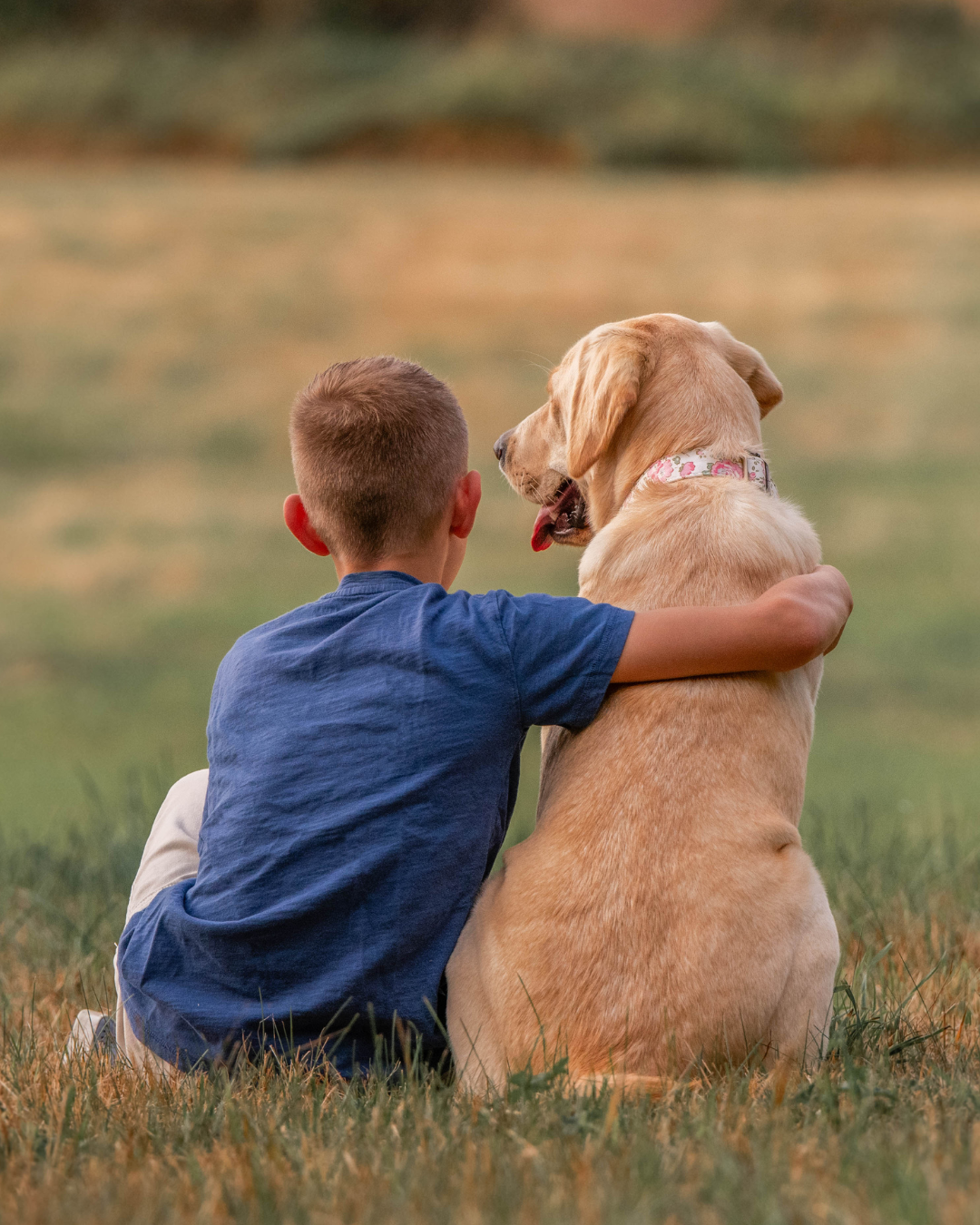OUR Programs

Mobility Service Dogs
Our Service Dogs are trained to do tasks such as: open and close doors, turn lights on and off, retrieve a telephone or other objects, pick up dropped objects (like a bank card or keys), pull manual wheelchairs, carry items like groceries, retrieve medication and provide balance and stability to clients with mobility issues.

PTSD SERVICE Dogs
Our Post Traumatic Stress Disorder (PTSD) Service Dogs are trained to support Veterans and First Responders (police, fire, paramedic or military; active duty or retired) with C-PTSD or PTSD. These dogs are trained to facilitate wellness and social re-integration in a variety of ways. They provide important physical, calming and grounding skills. Selected for their awareness and positive response to human emotions such as stress, anxiety and fear.
APPLICATIONS FOR PTSD SERVICE DOGS ARE CURRENTLY CLOSED

HEARING Dogs
These dogs are trained to alert their partner to a variety of sounds such as: knocking on the door, doorbells, ringing telephones, timers and smoke alarms. The dogs are trained to alert their partner to what is causing the sound by physically touching the person with their paw or nose.

FACILITY Dogs
APPLICATIONS FOR FACILITY DOGS ARE CURRENTLY CLOSED

VIP Dogs
VIP Dogs are special, very well-trained dogs that were not suitable for working with a client in public. This dog can be placed as a pet with a child or adult who has a disability. These dogs do not have any public access or special skills training, they are young adult dogs that we believe will be an asset to somebody with a disability looking for the companionship and love a dog can provide. We also understand that while many parents of a disabled child would love to have a pet for their child, the time and effort it would take to train and socialize a dog enough for it to be safe around the child is not always doable.
